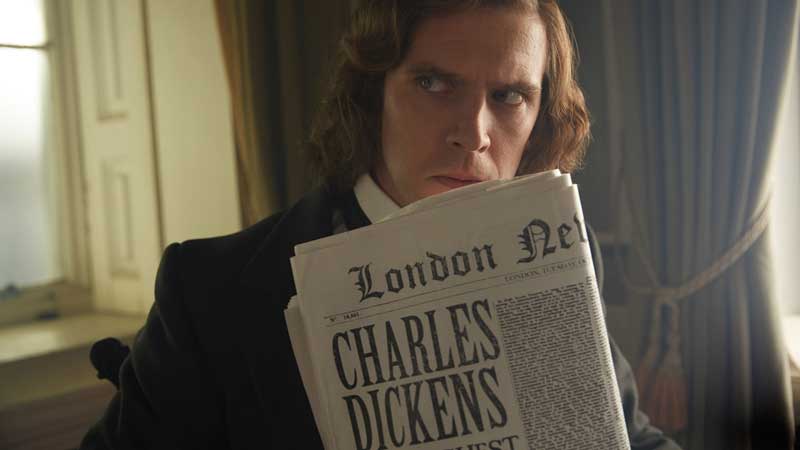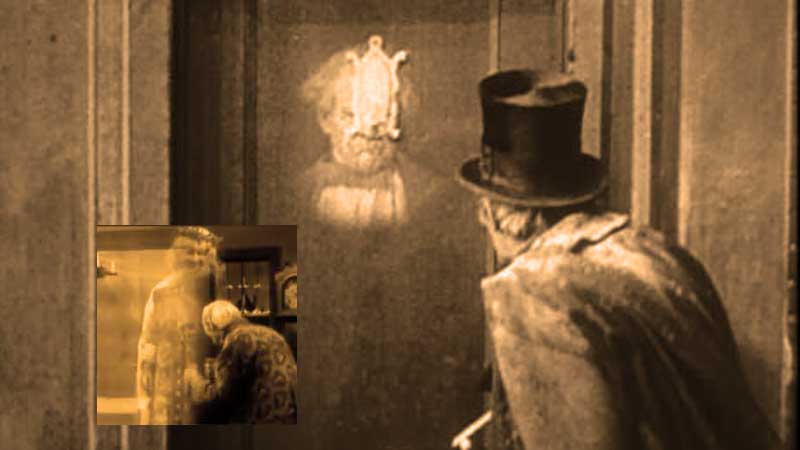Guest writer HEATHER ANDOLINA looks at Charles Dickens’ A Christmas Carol and the upcoming film, The Man Who Invented Christmas…
“I have endeavoured in this Ghostly little book, to raise the Ghost of an Idea, which shall not put my readers out of humour with themselves, with each other, or with me. May it haunt their houses pleasantly, and no one wish to lay it.” – Charles Dickens
“Bah Humbug!” When we hear these two words we instantly think of the cantankerous, ill-tempered, but beloved character of Ebenezer Scrooge from Charles Dickens Christmas classic, A Christmas Carol. We all know the tale. Scrooge, a greedy old miser is visited by the ghost of his former business partner, Jacob Marley and told that if he doesn’t change his avaricious ways a nightmare waits for him in the afterlife. It takes not one, not two, but three more spirits to finally change Scrooges selfish behavior.

What inspired Charles Dickens to write a Christmas tale with spirits? In the upcoming movie, “The Man Who Invented Christmas,” starring Dan Stevens as Charles Dickens, tells the story of how Dickens imagination created these unforgettable characters and a timeless tale that forever changed the holiday season into the celebration we know it today. What many people don’t know is how the supernatural played a huge part in Dickens inspiration for his “ghostly little book,” and how ghost stories were an integral part of the early Christmas tradition in England.
The telling of ghost stories in England actually predates the Victorian Age, when Dickens wrote A Christmas Carol. Ghost stories have been told since antiquity, but the specific telling of ghost stories around the fire during the winter months has its roots dating back in England to the Tudor/Elizabethan periods. They were not called ghost stories, but were referred to as winter tales because they were told during the winter months. The famous 16th/17th century English playwright, William Shakespeare wrote a play, aptly named, A Winter’s Tale first published in 1623, that has the line, “A sad tales best for winter. I have one/that’s best for sprites and goblins.”
By the Victorian era (1837-1901), in England, telling ghost stories on Christmas Eve and Christmas was a tradition. That’s why Charles Dickens easily infused ghost stories with the Christmas season. One of Charles Dickens earlier works, The Pickwick Papers, inspired Dickens in conjuring up the character of Ebenezer Scrooge. In The Pickwick Papers, Dickens told another story about a Christmas hating, miserly gravedigger named Gabriel Grubb, in the chapter titled, “The Story of the Goblins Who Stole a Sexton.” While working in the cemetery on Christmas Eve night, he is kidnapped by goblins and convinced to change his greedy ways. Sound familiar?

When brainstorming ideas for A Christmas Carol, Dickens wanted a similar story, one that was magical, fairy-like, and with supernatural elements. Due to the remarkable success of A Christmas Carol, Dickens went on to write four more Christmas books all with a supernatural twist: The Chimes (1844), The Cricket on the Hearth (1845), The Battle of Life (1846), and The Haunted Man (1848). They all follow the same narrative as A Christmas Carol.
Charles Dickens wrote, A Christmas Carol, over a 170 years ago. He is rightfully credited with inventing the Christmas holiday season, but I feel we do it a disservice today when we don’t acknowledge the supernatural elements to the holiday season. We need to bring back the true spirit of Christmas, and sharing ghostly stories around the fire on Christmas day would be a great start.
HEATHER ANDOLINA is a Charlotte, North Carolina-based historian with a Bachelors and Masters degree in History. She does paranormal investigations in her free time is currently working on a book about her personal paranormal experiences.


